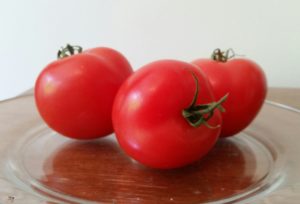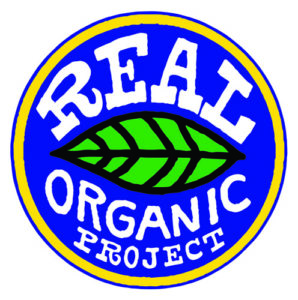 There is a big problem with the label ORGANIC. Many organic farmers are upset and disappointed with how "organic factory farms" have taken over the multi-billion organic food industry. And they should be upset.
There is a big problem with the label ORGANIC. Many organic farmers are upset and disappointed with how "organic factory farms" have taken over the multi-billion organic food industry. And they should be upset.
Organic foods are foods grown and processed following organic farming standards (rules). But... Big Business (who support factory farms) has influenced the organic rules and has found all sorts of loopholes which they use. This is not for the better for the farmer or consumer.
Ethical organic farmers are paying the price. Doing organic correctly (e.g., cows actually graze outdoors, berry crops actually grown in soil) costs more than factory farming which ignores organic rules (e.g., stuffing thousands of animals into buildings without any real access to outdoors). So... the smaller organic farmers actually following the spirit of organic standards can't compete with factory farms and are being forced out of farming.
Also, much "organic" food and products coming from countries such as China and Turkey are NOT organic - the label is a total fraud. That is why their "organic" is so cheap compared with North American and European grown organic food.

Organic farmers are now fighting back by developing labels that distinguishes their food and products as "real" organic - organic how it's meant to be. For example, the animals receive organic feed from the start, do go outside, and crops are grown in soil (and not artificially in water filled containers). A new label gaining popularity is Real Organic Project. So far over 1000 US farms have joined.
What you can do: Go check out farmers markets and support small farms. Buy organic food that is known to support real organic practices (e.g., Organic Valley - a co-op of organic farmers) rather than factory farmed food (e.g., Horizon, Aurora). [See photos: Cornucopia; Two organic farm and industry watchdogs are OrganicEye and Cornucopia Institute]
Written by organic blueberry farmer Hugh Kent, from Mother Earth News: Real Organic Project: Is “USDA Organic” Really Organic?
Is “USDA Organic” Really Organic?
Many of us who want good, healthy food look at labels in hopes they’ll help us evaluate our food and its quality. We’ve turned with hope to terms like “all-natural,” “sustainable,” and, lately, “regenerative,” but none of these has an established or consistent meaning. In the U.S., the word “organic” stands alone as a term defined by law. “Certified Organic” can only be used if the product complies with the law (which emphasizes the enhancement of soil quality as its foundational principle).
Despite this, in recent years, the USDA has allowed hydroponic farming systems to be labeled as “USDA Certified Organic” — with no distinction from soil-grown “USDA Certified Organic.” These hydroponic crops are grown in containers, and they derive their nutrition from a liquid feed. Virtually no other country on Earth allows these soil-less, hydroponic systems to be labeled as organic.
Intended or not, current USDA organic policy is doing more than just allowing hydroponics. It’s effectively eliminating many soil-grown Certified Organic products from the marketplace in favor of “replacements” grown without soil on an industrial scale.
“Certified Organic” Definition and Hydroponics
As a soil-based, organic blueberry farmer, I’ve watched this rapid shift to soil-less systems. Hydroponic blueberries are commonly grown in plastic bags or plastic pots filled with an inert, lifeless substrate, such as coconut coir. I suspect only a small percentage of consumers know this is happening, as “organic” hydroponic container growers aren’t currently required to disclose that they’re hydroponic.
After a significant initial investment of capital (something industrial-scale agribusinesses have readily available), soil-less systems are cheaper to operate, with many of the costs of production shifted or hidden. The typical soil-less system’s use of plastic ground cover, plastic pots, and inert substrates ignores soil health and treats the land as merely a surface to be leveled, compacted, and covered with plastic containers. As containerized plants become root-bound, the installation is typically disposed of within a few years. The plastic remnants go to landfills. In the meantime, rainwater that falls on these “farms” often runs off or leaches plastic byproducts into the soil.
There are also significant nutritional differences between soil-based systems and hydroponic ones. Our digestive systems evolved right along with food grown in the Earth’s soil. These new soil-less systems of nutrition were invented by humans, challenging the wisdom of hundreds of thousands of years of coevolution. So shouldn’t we be allowed to know whether our “Certified Organic” food is soil-grown or not, and make our own choices? By its actions and policies, the USDA “Certified Organic” defintion says no.
Most recently, the USDA has identified the crucial role of soil stewardship in addressing climate change. Ironically, the USDA is simultaneously eliminating soil stewardship (and soil itself) from many USDA Certified Organic farming systems.

In response, the farmers who started the organic movement in the U.S. have formed the Real Organic Project (ROP). This label protects the integrity of organic foods. In just a couple of years, more than 1,000 farms have joined, with more certifications in process. Please look for this label to support their efforts — and to ensure you’re getting real organic food. If you’re an organic farmer, consider applying for Real Organic Project certification, and if you’re an eater who knows an organic farmer, speak with them about the opportunity. In whatever way you can, please support the Real Organic Project. To learn more, visit Real Organic Project
